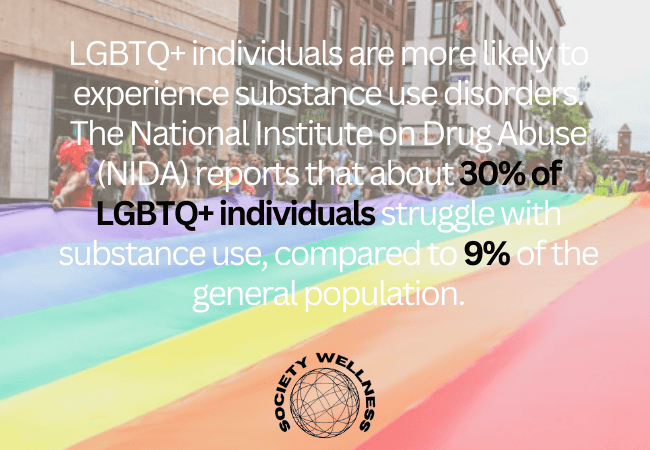Outpatient drug rehab programs provide a crucial bridge to recovery for individuals struggling with substance use disorders. For members of the LGBTQ+ community, these programs offer tailored care in a supportive and inclusive environment. At LGBTQ Addiction Centers in Massachusetts, our outpatient programs prioritize your unique needs, combining evidence-based therapies with an understanding of the challenges LGBTQ+ individuals may face in their recovery journey.
Understanding Outpatient Drug Rehab Programs
Outpatient drug rehab programs are designed for individuals who need structured addiction treatment but prefer the flexibility to maintain daily responsibilities. Unlike inpatient programs that require 24/7 residency, outpatient care allows participants to live at home while attending scheduled therapy sessions and activities.
At our LGBTQ Addiction Center in Massachusetts, we provide a continuum of outpatient care through various levels of treatment, including:
- Partial Hospitalization Programs (PHP): This intensive, structured program typically involves several hours of therapy and treatment each day, five to seven days a week. PHP is ideal for those who need comprehensive support but do not require round-the-clock care.
- Intensive Outpatient Treatment (IOP): A step down from PHP, this program involves fewer hours per week while still providing access to robust therapy and support. It’s an excellent option for individuals transitioning from more intensive care or those needing structured support to maintain recovery.
- Outpatient Treatment Programs (OP): Designed for those who require minimal supervision, outpatient treatment provides flexibility for individuals with work, school, or family commitments.
These programs cater to a range of recovery needs, making them accessible and effective for LGBTQ+ individuals at various stages of their recovery journey.
The Benefits of Outpatient Drug Rehab Programs
Outpatient rehab offers numerous advantages, especially for LGBTQ+ individuals:
- Affirming Care: Programs are explicitly designed for LGBTQ+ individuals, reducing the risk of discrimination or misunderstanding.
- Flexibility: You can maintain your daily responsibilities while receiving top-quality care.
- Cost-Effectiveness: Outpatient programs are often more affordable than residential options.
- Strong Support Network: Engage with peers and professionals who understand and respect your experiences.
Challenges Addressed in LGBTQ Addiction Treatment Programs
LGBTQ+ individuals often face unique challenges that can contribute to substance use and complicate recovery efforts. An effective outpatient program recognizes and addresses these specific issues, creating a safe and affirming environment for healing.
- Discrimination and Stigma: Experiences of prejudice and exclusion can lead to stress and isolation, increasing vulnerability to substance use as a coping mechanism. LGBTQ Addiction Treatment Programs provide a supportive environment where participants feel understood and respected.
- Minority Stress: The chronic stress resulting from societal marginalization can exacerbate mental health issues and fuel addiction. Outpatient programs focus on reducing the impact of minority stress through specialized therapies.
- Rejection and Family Dynamics: Many LGBTQ+ individuals face rejection from family or community due to their identity. These programs offer therapy to address the emotional impact of such experiences and help rebuild relationships when possible.
- Co-Occurring Disorders: Substance use often coexists with mental health issues such as depression, anxiety, or PTSD. LGBTQ-focused treatment integrates mental health care to address both conditions simultaneously.
Why Choose LGBTQ-Specific Outpatient Programs?
The LGBTQ+ community faces unique challenges when it comes to addiction and mental health, including:
- Discrimination and stigma
- Minority stress
- Higher rates of trauma
- Limited access to affirming care
At LGBTQ Addiction Centers, we understand these barriers and have designed our programs to provide affirming, safe, and effective care. Here’s how we address these needs:
1. Safe and Inclusive Environment
Our facilities are LGBTQ+ affirming spaces where your identity is respected, and your experiences are validated. From the moment you walk through our doors, you’ll be met with compassion and understanding.
2. Specialized Therapies for LGBTQ+ Individuals
Our programs incorporate therapies that address issues like minority stress, internalized stigma, and relationship challenges. Evidence-based methods like Cognitive Behavioral Therapy (CBT), Dialectical Behavior Therapy (DBT), and trauma-informed care are adapted to meet your specific needs.
3. Peer Support Through LGBTQ Day Treatment Programs
Peer connections play a vital role in recovery. Our LGBTQ Day Treatment Programs provide opportunities to build supportive relationships with others who share similar experiences, fostering a sense of community and belonging.
4. Family Involvement and Education
For many individuals, family dynamics play a significant role in recovery. Our programs educate and involve family members to help them provide the right support and understand the unique challenges LGBTQ+ individuals face.
5. Flexibility and Accessibility
Outpatient programs are designed to work around your schedule, allowing you to focus on your recovery without sacrificing work, education, or personal obligations.
What Happens in an Outpatient Drug Rehab Program?
Here’s what you can expect when you enroll in an outpatient program at LGBTQ Addiction Centers:
1. Comprehensive Assessments
Your journey begins with an in-depth evaluation to understand your needs, substance use history, mental health conditions, and goals. This helps us create a personalized treatment plan tailored to your recovery journey.
2. Individualized Therapy
You’ll engage in one-on-one sessions with licensed therapists who specialize in addiction and LGBTQ+ mental health issues. These sessions explore the root causes of addiction and develop coping strategies.
3. Group Therapy
Participate in LGBTQ-specific group therapy sessions to share experiences, gain insights, and build connections. Topics often include relapse prevention, identity exploration, and relationship dynamics.
4. Skill-Building Workshops
Workshops focus on developing essential life skills like stress management, effective communication, and emotional regulation.
5. Relapse Prevention Planning
Our team will work with you to identify triggers, create coping strategies, and develop a plan for maintaining sobriety after completing the program.
6. Aftercare Planning
To ensure long-term success, we help you transition into ongoing support services such as alumni groups, continued therapy, or less intensive outpatient care.
Types of Therapies Offered in Outpatient Programs
Effective outpatient programs utilize a range of evidence-based therapies, tailored to the unique needs of LGBTQ+ individuals. These therapies aim to address the root causes of addiction while fostering personal growth and resilience.
- Cognitive Behavioral Therapy (CBT): Helps participants identify and change harmful thought patterns that contribute to substance use. It also teaches coping strategies for managing stress and cravings.
- Dialectical Behavior Therapy (DBT): Particularly effective for individuals dealing with intense emotions or self-destructive behaviors, DBT focuses on mindfulness, emotional regulation, and interpersonal effectiveness.
- Group Therapy: LGBTQ-specific groups provide a safe space to share experiences, receive support, and build connections with peers who understand the unique struggles of being LGBTQ+ in recovery.
- Trauma-Focused Therapy: Addresses unresolved trauma, which is a common underlying factor in addiction. Therapists use approaches like EMDR (Eye Movement Desensitization and Reprocessing) to process traumatic experiences.
- Holistic Therapies: Practices such as mindfulness meditation, yoga, and art therapy promote overall well-being and stress management, supporting recovery on multiple levels.
How Outpatient Care Fits Into the Recovery Continuum
Outpatient care plays a vital role in the broader recovery journey, offering support for individuals at different stages of treatment.
Transition from Intensive Care
Many individuals begin their recovery in a higher level of care, such as a Partial Hospitalization Program (PHP) or residential treatment. Outpatient programs serve as a step-down option, allowing participants to continue receiving support while gradually reintegrating into daily life.
Flexible Support for Newcomers
For those who cannot commit to inpatient care, outpatient programs provide an accessible entry point to treatment. This flexibility enables individuals to balance recovery with responsibilities like work or family.
Ongoing Maintenance
After completing intensive care, outpatient treatment helps individuals maintain sobriety and address challenges as they arise. Continued access to therapy and peer support reduces the risk of relapse.
Focus on Real-World Application
Outpatient programs bridge the gap between structured treatment and independent living. Participants practice applying recovery skills in their daily environments, with guidance and feedback from therapists.
Practical Tips for Succeeding in an Outpatient Program
Outpatient programs offer flexibility, but success requires commitment and active participation. Here are practical tips to help you make the most of your outpatient treatment:
Establish a Routine
Stick to a consistent schedule that incorporates your therapy sessions, work or school obligations, self-care, and recovery-related activities. A structured routine fosters stability and accountability.
Engage Fully in Therapy
Be open and honest during individual and group therapy sessions. The more you share and participate, the more you’ll benefit from the program.
Build a Support Network
Connect with peers in your program, as well as friends and family members who support your recovery. A strong network can provide encouragement and help you navigate challenges.
Prioritize Self-Care
Recovery is demanding, so make time for activities that nurture your mental and physical health. Exercise, proper nutrition, adequate sleep, and mindfulness practices are all essential.
Prepare for Triggers
Work with your therapist to identify potential triggers and develop strategies to manage them. This might include creating an emergency plan for cravings or avoiding high-risk situations.
Stay Committed to Aftercare
Recovery doesn’t end when treatment does. Engage in aftercare services, such as alumni programs, continued therapy, or 12-step meetings, to maintain your progress over the long term.
Celebrate Small Wins
Recognize and celebrate your achievements, no matter how small they may seem. Progress is progress, and every step forward is a victory worth acknowledging.
Start Your Recovery Journey at LGBTQ Addiction Centers in Massachusetts
Recovery is possible, and it starts with taking the first step. Whether you’re considering a Partial Hospitalization Program, Intensive Outpatient Treatment, or a flexible Outpatient Treatment Program, LGBTQ Addiction Centers in Massachusetts are here to support you.
Our LGBTQ Addiction Treatment Programs provide a safe, compassionate environment where you can heal and thrive. Contact us today to learn more about our services and take the first step toward a healthier, substance-free life.
Conclusion
Outpatient programs, especially those tailored for LGBTQ+ individuals, provide an essential lifeline for those seeking recovery. These programs address unique challenges, offer evidence-based therapies, and fit seamlessly into the continuum of care, ensuring support at every stage of the journey. Whether transitioning from intensive treatment or beginning recovery in a flexible setting, participants gain the tools, strategies, and community they need to build a healthier, substance-free life. Reach out to us at (888) 598-9510 to learn more about our specialized programs and how we can support your journey to recovery.
FAQ on LGBTQ+ Outpatient Addiction Treatment Programs
What is an LGBTQ+ outpatient addiction treatment program?
An LGBTQ+ outpatient addiction treatment program provides personalized care to individuals in the LGBTQ+ community dealing with substance use. These programs offer therapy and support while allowing participants to live at home and manage daily responsibilities.
What types of therapies are used in LGBTQ+ outpatient programs?
LGBTQ+ outpatient programs incorporate a variety of therapies, including Cognitive Behavioral Therapy (CBT), Dialectical Behavior Therapy (DBT), group therapy, trauma-focused therapy, and holistic approaches like yoga and mindfulness to support mental and emotional healing.
How does an outpatient addiction treatment program work?
Outpatient programs offer flexible treatment options where participants attend therapy sessions several times a week. These sessions may be individual or in a group setting and focus on addiction recovery, mental health support, and life skills to maintain long-term sobriety.
What challenges are addressed in LGBTQ+ addiction treatment programs?
LGBTQ+ addiction programs address challenges such as discrimination, minority stress, rejection from family or community, and co-occurring mental health issues. The programs are designed to create a safe, inclusive environment that supports healing and recovery.
Can I work or attend school while in an outpatient program?
Yes, one of the main benefits of outpatient treatment is that it offers flexibility. You can continue working or attending school while receiving treatment, as long as you maintain a commitment to your recovery and attend scheduled therapy sessions.

